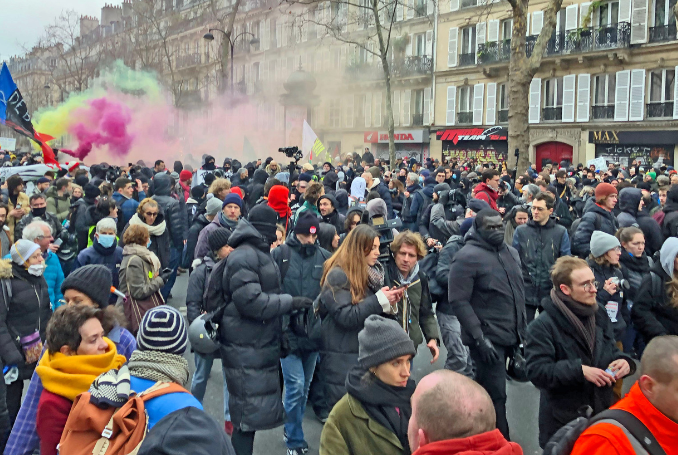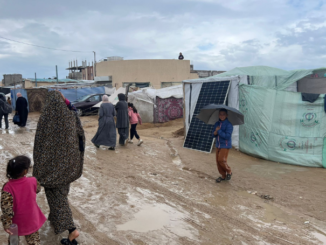
For several weeks now, France has been experiencing major demonstrations against the proposed reform of the pension system.
With the proposed reform, the retirement age would be raised from 62 to 64, and workers should contribute to the system at least 43 years to qualify for a full pension and benefit from a minimum salary threshold of €1,200 euros (Approx. $1,300) per month.
The reform is part of a series of measures that were implemented throughout the years by successive governments, either right-wing or so-called left-wing coalitions. The final goal is to wage a frontal war on social and economic rights: healthcare system, unemployment benefits, family allowances, housing allowances, and so on.
Indeed, every form of social security has been called into question, opening new areas for privatization and imposing the use of private pension funds.
Meanwhile, the French government recently announced a budget of €400 billion (Approx. $430 billion) for the army over the next six years.
The government’s move aims at ensuring immense profits for the French military-industrial complex, with big repercussions on France’s foreign policy.
France’s constitution, dating back to 1958, gives the president total control over the defense and foreign policy. This constitutional system is, in some respects, authoritarian since it reduces the power of the elected parliament. Now more than ever, the system does not reflect the expectations of French citizens.
With the current protests, it has become clear to French oligarchs that the workers have their own interests, which are in direct conflict with the interests that have dominated French society for too long.
There is an increasing degree of radicalization of the social movements, which have not hesitated, on several occasions, to attack the very symbols of the state. For example, buses of the ‘gendarmerie’, a body belonging to the French army, were set on fire during a protest in defense of the environment in the French department of Deux-Sèvres.
French President Emmanuel Macron has often resorted to using special constitutional powers to override the parliament and pass the law. This move triggered and maintained a political crisis that Macron did not expect.
Aside from these decisions, which stretch the bounds of constitutional legality, Macron lacks representativity. The only reason why he was elected president for the second time was the fact that he was running against a far-right candidate. This pushed many to vote for him, although reluctantly.
No society in history can endure a protracted lack of representation. It seems that French society is now reacting, despite the ferocious police repression and the systematic denigration of the social movement in mainstream media.
Moreover, the choice to open an internal front while waging war on Russia abroad is a remarkable example of political blindness. It is more proof of top-down impositions, implemented through the manipulation of the institutions and the absolute submission of mainstream media.
Perhaps, French society has reached a breaking point where the social majority eventually wants to impose its rights.
Any challenge to a fundamentally unjust and unbalanced economic and political order can only be beneficial to the many struggles for justice at the international level, including the Palestinian struggle.
The latter has always been emblematic of the strenuous resistance against an iniquitous and predatory military occupation. Therefore, it should receive massive and spontaneous sympathy from all social movements across the world, including France.

– Claude Zurbach is the editor of Chronique de Palestine, the French version of the Palestine Chronicle website. A computer engineer by profession, he has been involved for many years in solidarity with the Palestinian national movement. His Twitter account is https://twitter.com/ClaudeZurbach








